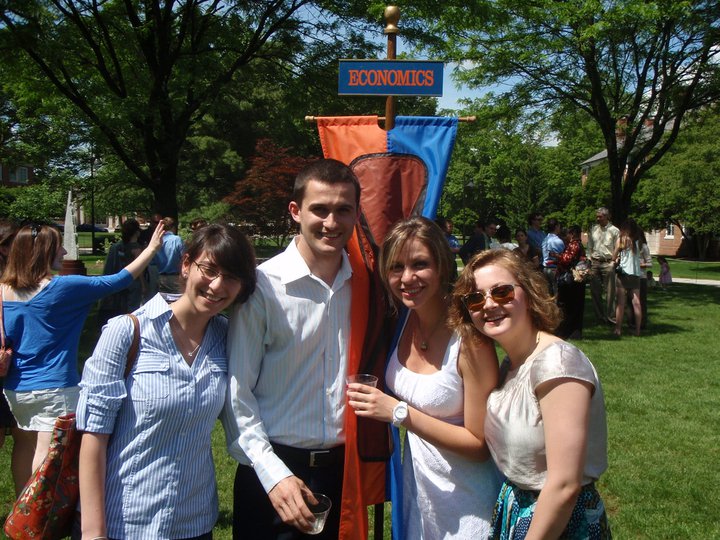

The first time Svet Semov ’11 knew he wanted to pursue his Ph.D. in economics was when he was sitting in economics prof. Char Weise’s class. Weise was explaining his research on the Great Inflation of the 1970s to the class, and for Semov, it just clicked.
“Hearing Weise talk about his research was where my fascination with data really started,” Semov said. “Having the ability to think of a clever idea, collect your own data and engage in a policy debate based on that data, sounded pretty remarkable to me.”
Since then, Semov graduated valedictorian of his class, received a Ph.D. in economics at Boston University, and is now working as an economist for Amazon Web Services in Seattle, Washington.
“Amazon is the largest private sector employer of Ph.D. economists,” Semov explained. “It’s a very data-driven company. The people who make decisions are very willing to listen to what that data says. For me, it really makes for a great environment.”
When Semov first came to Gettysburg, he knew he wanted to study math. He came from a high school in Bulgaria that specializes in math, but he was also looking for a way to complement his quantitative focus with a subject that was grounded in policy.
He declared a double major in math and economics and got involved in campus activities like Amnesty International, International Relations Club, German Club, and the Campus Activities Board. He was also an Eisenhower Institute Undergraduate Fellow, where he examined public policy issues and elevated bipartisan discourse across campus.
It was his course work that had the greatest impact on him during his time at Gettysburg, though. He took multiple courses with Weise, including a monetary policy class that competes in the annual Federal Reserve Challenge, and distinctly remembers Weise’s feedback on his senior thesis.
“He kept pushing me to look at more than just the data,” Semov said. “He wanted me to be aware of the relevant institutional details, the cultural context from which the data was drawn, and the historical narrative surrounding the period I was studying. He was pushing me to make sense of the data, and I feel this emphasis on contextualizing data to better interpret it has stuck with me.”

The biggest difference between the data he was working with at Gettysburg and Boston University, though, and the data he works with now at Amazon, is that he has the ability to influence decision making and see the outcome of those decisions.
“It’s still a new feeling for me, to be able to translate analysis into change,” Semov said. “In grad school, you analyze data and get results, but there aren’t necessarily changes made based on your analysis. At Amazon, I was recently evaluating a training program and met with the person responsible for it as part of my research. There was a more personal connection, and the results I found helped make more informed business decisions.”
Semov joined Amazon Web Services shortly after his graduation from Boston University in the spring of 2017. He works on their strategy and productivity team and uses data to try to increase the productivity of the sellers who work for Amazon. What he finds equally exciting about his role is the ability to keep learning the latest advances in econometrics and to apply them to real-world questions.
“I’m very excited about the questions I am pursuing here at Amazon. I want to make sure that I am continuing to learn and get better at my field. The tools for analyzing data keep evolving, and I try to keep up with that. It’s not easy, but it’s exciting, especially when you see the end goal.”
Keeping that excitement central to career goals is something that he would encourage current students and young alumni to do, too.
“It’s hard to put the hours in when you don’t have something you are excited about,” Semov said. “At Gettysburg, I was excited about the research I was doing with Weise on the policy response in financial crises. In grad school, I had to be excited about the research I was doing because I was spending so much time with it. You have to find something you’re excited about, otherwise you won’t want to put the hours and the work in.”
More stories



